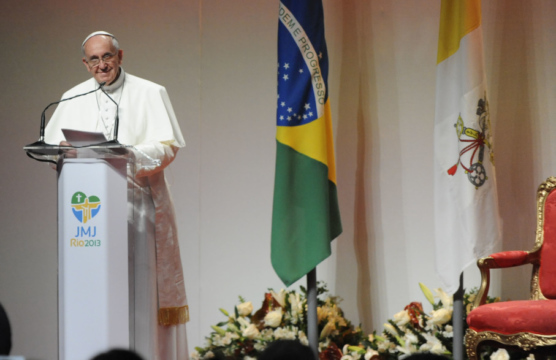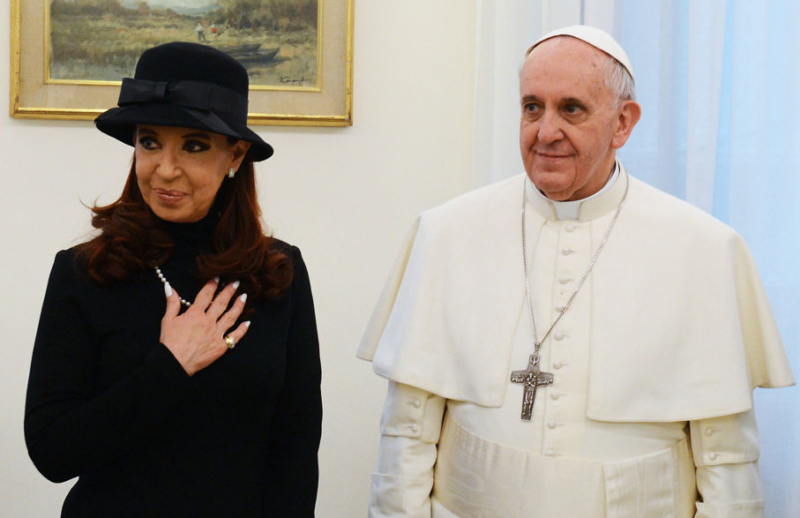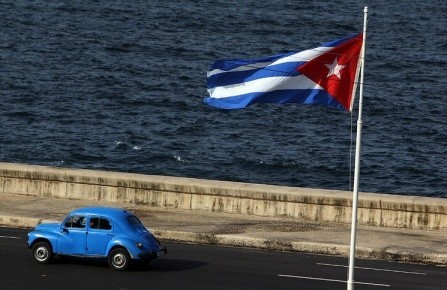
Will the Pope’s Trip Have Lasting Effects?
Why did Francis choose Brazil for his first foreign trip as pope? Was the trip a success, and for whom?
Could Pope Francis be the first “Green Pope”? While too early to tell, the pontiff’s namesake, St. Francis of Assisi, was a lover of nature as well as an outspoken voice for the marginalized. Given that climate change disproportionately impacts the poor, environmental stewardship may be an area in which the Pope focuses the energies of the Catholic Church.
This was one of many topics that Cardinal Theodore McCarrick, archbishop emeritus of Washington DC, expanded upon during an Inter-American Dialogue discussion on the selection of Jorge Mario Bergoglio, former archbishop of Buenos Aires, as Pope. Just one month after the conclave, assessing the impact of this papacy was a task more suitable for a prophet than a cardinal, McCarrick remarked. Nevertheless, the prominent church official shed light on the selection and personality of the pontiff and laid out possible priorities going forward.
On the eve of Pope Francis’ selection, there was broad consensus among church leadership that the future of the Catholicism lays outside of Europe. Some 40 percent of Catholics live in Latin America while Africa is widely considered the best opportunity for expanding the Vatican’s flock. This was likely a motivation for selecting an Argentine.
The Pope’s age was another consideration. While many in the media assumed the conclave would choose a younger man – Pope Benedict was 78 when selected –McCarrick asserted that the College of Cardinals was searching for a papa santo, not a papa eterno. The selection of Pope Francis, who is 76, confirms the preference for a pontiff with vigor and energy but who will not serve too long. Some Vatican observers have since commented that Pope Benedict’s resignation may have emboldened the cardinals to select an older man under the assumption that he too will step down rather than die in office.
Pope Francis’ commitment to the poor was a recurring topic. Many, including McCarrick, have pointed to the pontiff’s work alleviating poverty as a cornerstone of his career. An audience member asked whether the church would begin to “learn economics,” that is, focus on proven poverty reduction strategies rather than simply extolling charitable giving. McCarrick, as well as other participants who knew the pontiff, asserted that Pope Francis is quite familiar with the subject. Even President Dilma Rousseff of Brazil has publically commented on the Pope’s knowledge of social programs in her country. This may be a sign that the Church may take a more active and technical role in the fight against poverty in the years to come.
It is no secret that during his time as the archbishop of Buenos Aires, Pope Francis was no friend of President Cristina Fernández de Kirchner. Among other episodes, the president’s endorsement of same-sex marriage soured the relationship with the Argentine Church. While President Fernández was the first head of state Pope Francis received, all may not be forgotten just yet. McCarrick recounted, with just a touch of relish, how past popes have complicated life for other Latin American leftist leaders. During his visit to Cuba, for instance, John Paul II publicly called Havana’s Revolutionary Square by its pre-revolution name - Plaza José Martí – in a not so subtle jab at Fidel Castro, who was sitting in the audience. How the Pope navigates the politics with his native Argentina is just one of many questions that only time will tell.
Why did Francis choose Brazil for his first foreign trip as pope? Was the trip a success, and for whom?
Pope Francis’ preferential option for the poor and genuine benevolence is part of an effort to stop the hemorrhaging of Catholics to Pentecostalism in Latin America.
The removal of Cuba from the list of states sponsoring terrorism has opened the way for the establishment of diplomatic relations.
 Casa Rosada / CC BY-SA 2.0
Casa Rosada / CC BY-SA 2.0
 Video
Video